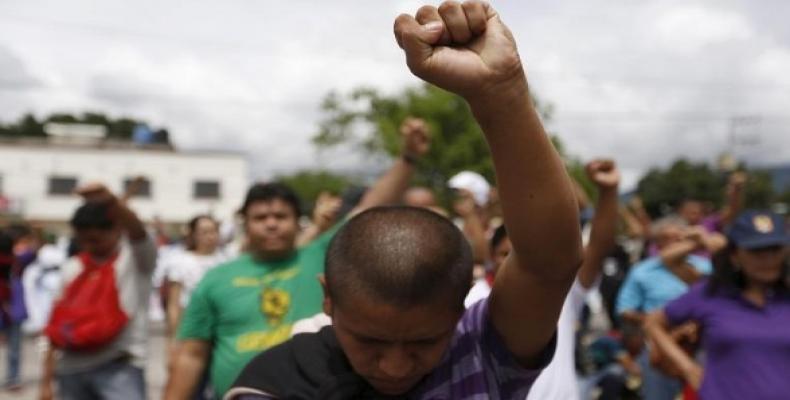Mexico City, October 2 (teleSUR-RHC)-- Thousands of Mexicans will march in Mexico City on Friday to commemorate the anniversary of the 1968 massacre of students by the state in Tlatelolco Plaza, in the heart of the capital.
This year's march will hold special significance as the march will again remember the 43 forcibly disappeared students from the Ayotzinapa teachers training college and because the Mexico City police carried out unprecedented exercises simulating disturbances as if they expected violence to erupt this Friday.
Their disappearance in the southern state of Guerrero on Sept. 26-27, 2014 happened as the students were gathering funds in order to participate in the commemoration of the 1968 massacre in Mexico City.
Contingents from 15 sister schools of the Ayotzinapa college will participate in a demonstration in the Plaza of Three Cultures, the site of the massacre.
Though the marches to commemorate the massacre have been largely peaceful over the years, La Jornada reported that state security forces held simulations in the lead up to Friday's march, seemingly preparing for violent clashes.
State security officials have used previously heavy-handed tactics against marches demanding justice for the missing 43 students.
In the lead up to the 1968 Summer Olympics in Mexico, thousands of students went on strike to protest poverty, inequality, and the Mexican government that was doing little to address these issues but spending millions on the games.
The strike was so large that it threatened to disrupt the games and tarnish the government's careful efforts to purportedly showcase the country to the world.
On October 2, 1968, a mere 10 days from the opening of the Olympics, a massive rally was held in the Plaza of Three Cultures in the community of Tlatelolco. Shortly after 6 p.m. two flares were fired from a helicopter. This was apparently the signal for police and military to attack the rally.
Shots rang out and chaos ensued, demonstrators attempted to flee but the exits from the plaza were blocked by security forces. The exact number of casualties is unknown but estimates range from 300 to 500 killed that day.
The Mexican government engaged in a systemic cover-up of its role in the massacre, with evidence of the state's role in the crime only emerging decades later.
Relatives of the forcibly disappeared 43 allege, like in 1968, the government is engaging in a cover-up of the state's role in the crime.


